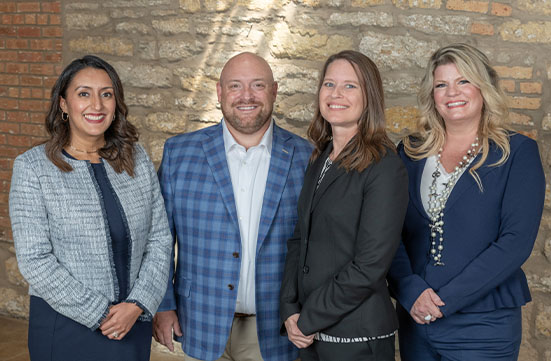Need help now? Schedule your free consultation with our legal team
Elder Law
It is a terrible day when you realize someone you love may not be able to live on their own any longer.
Your head spins with questions: How will we pay for all of this? What should I do? Who can we call for help?
We understand. We are here to counsel you when things get tough.
 Very few people know how to handle the multifaceted complexity caused by dementia, Alzheimer’s, Parkinson’s Disease, or another diagnosis that may require long-term care.
Very few people know how to handle the multifaceted complexity caused by dementia, Alzheimer’s, Parkinson’s Disease, or another diagnosis that may require long-term care.
What matters most is finding care for your loved one. But how do you pay for that care? At a monthly average cost of $6,000 to $8,000 or more in Illinois, nursing home expenses can quickly consume the life savings of even the most conscientious planners and savers.
Many people believe that Medicare will pay for nursing home costs. But Medicare only provides healthcare benefits for “acute medical care,” rehabilitation services, and prescription drugs. “Acute medical care” is short-term treatment for a condition or illness from which recovery is expected.
Medicare was not designed to pay for the kind of care you will need if you have the misfortune of having dementia or other long term–care needs. For most people, long term–care assistance begins in the home, progresses to the assisted-living facility, and then eventually ends at a skilled nursing facility (nursing home).
In other words, Medicare pays only if you are expected to get better and go home! Many people are shocked to discover that the Medicare benefits they paid into for years will not pay for “skilled care” in a nursing home if that stay lasts longer than a few months.
Long term–care insurance could help, but the unfortunate reality is that very few people have a viable long term–care insurance policy. That means you are on your own to pay for the cost of care at home, in an assisted-living facility, or in a nursing home.
Because the cost is so high, most people who require that type of care will need the assistance of the hybrid federal/state Nursing Home Medicaid program.
Unlike Medicare, which is available to qualified individuals with no means-testing, Medicaid requires that the person needing care and their spouse meet strict limitations of income and assets means-testing by the state of their residence.
What will be left for the healthy spouse once their life savings has been spent taking care of the spouse who needs long-term care?
Don’t Go Broke in a Nursing Home!
Understanding nursing home Medicaid benefits and eligibility for Illinois residents is challenging. You need a knowledgeable elder law attorney to guide you and your family and help you understand how to:
- Avoid impoverishment of the healthy spouse because of the nursing home costs for the spouse needing help.
- Preserve the family home from loss due to nursing home costs, for the benefit of the healthy spouse and/or an adult child with a disability.
- Understand that Medicare does not pay the cost of in-home or in-facility long-term care, except for the limited purpose of rehabilitation after a post-hospital inpatient acute-care stay of 3 or more days.
- Understand nursing home Medicaid and asset-protection planning.
- Avoid the hidden traps and obstacles that can cause denial or delay in the approval of nursing home Medicaid and/or long term–care Veterans’ benefits.
- Avoid denial of nursing home Medicaid benefits caused by do-it-yourself asset-protection strategies involving transfers of assets and monetary gifts to children and grandchildren.
Please call us at (630) 585-5200 as soon as possible when something has changed in your life or in the life of someone you love.
We’ve been here for our clients for nearly 20 years, and we will continue to be here to help you and your family make sound decisions for life and legacy. We can help you avoid mistakes, save money, and take control!
Our Reviews
My wife and I had our first child three years ago. That’s when we decided to set up a trust, should anything happen to either of us. We reached out to Zach Hesselbaum to help us out. He was very thorough and professional throughout the whole process. Zach went above and beyond to make sure that we understood every detail of setting it up and he did an excellent job. We recently had our second child a few months ago. With the new baby, he helped us make the necessary revisions to the trust. Zach made this process great for us! I would definitely recommend using him for any of your estate planning needs!
Tom G., Naperville, IL

